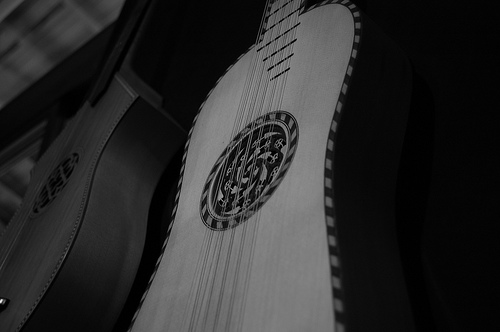
Three early-eighteenth-century codices of music in tablature for the viola (five-course guitar) are about all that remains from the Portuguese repertory for that instrument upto the publication of Manuel da Paixão Ribeiro’s book in 1789. These extremely variedsources illustrate in a remarkable way the musical interactions between Portugal, other European countries, and Iberian colonies. More than that, part of their content seems to fitinto a gray area between so-called art music, of written transmission, and music of the oraltradition.While this dissertation examines these issues in the context of the history of theinstrument and its players in Portugal and Brazil, a more substantial section of thedissertation deals with the origins, development, and transmission of the repertory, isolatingsome particular Portuguese features from more general characteristics of musical forms anddance-types.An important part of this repertory relates to the Portuguese colonies in Africa andSouth America.
This dissertation examines this connection in the Iberian-American musicaland literary context, giving special attention to the works of Brazilian poet Gregório deMattos Guerra (1636-1696). It considers the propagation of this repertory in Brazil as seen inhis poetry, and how Brazil may have played a role of mediator between Africa and Portugalin the development of part of this repertory.An anthology with more than one hundred pieces from Portuguese viola sources, both in tablature and in conventional notation, with reconstruction of the rhythm, is presented as an appendix to the dissertation
By Rogerio Budasz
http://ucriverside.academia.edu




